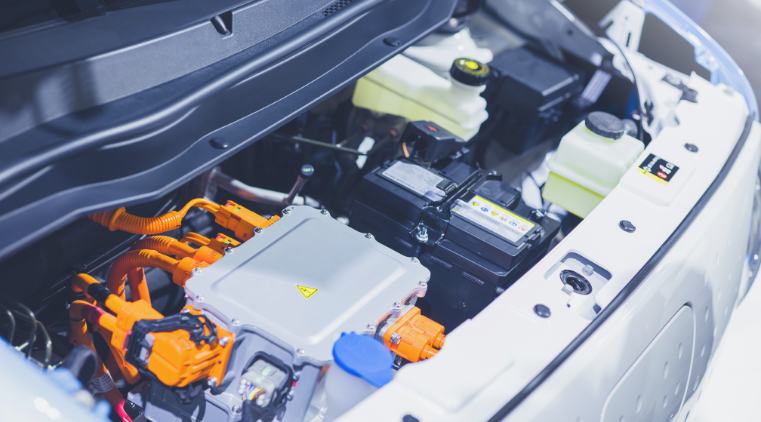Whether you own or operate a single vehicle or a group of vehicles for commercial purposes, incorporating Electric Vehicles (EVs) into your commercial or fleet operations can generate environmental and economic benefits.
Commercial EVs can save businesses 30 to 60 percent in fuel expenses compared to conventional vehicles. This projection is based on electricity being the primary source of energy with no reliance on fossil fuels which are subject to price volatility. It does not cost as much to operate and maintain EVs because they have simpler drivetrains with fewer parts. Oil changes and other regularly required maintenance are not needed, and EVs do not make a lot of noise, creating a smoother driving experience. EVs also can help businesses reduce greenhouse gas emissions, achieve sustainability goals, and improve brand reputation and customer perception.
Whether EVs are a viable solution for your needs today or in a few years, Cleco is committed to providing comprehensive support and tailored solutions. Start your informed decision-making here and let's drive your business toward lower operating costs while achieving a cleaner, greener and more sustainable future.
To help make your business' electrification journey easy and accessible, Cleco is offering FREE fleet assessments and up to $3,500 in incentives to commercial customers for EV chargers and forklift equipment. The table below provides the specific dollar amounts. Click here to apply and view terms and conditions. Federal grants also are available to offset upfront costs associated with purchasing EVs, making it a financially favorable decision for businesses. Click here for grant information.
for Commercial EV Chargers and Forklift Equipment
Fleet Assessments
Cleco offers fleet assessment services to customers transitioning a large fleet to EVs. Cleco’s team of experts will assess your fleet's unique requirements and identify specific vehicles and routes suitable for electrification and
develop a plan for EV charging at no charge to you. Contact Us to schedule your free fleet assessment.
Incentives Available to Commercial Customers
Robust charging infrastructure is essential to widespread EV adoption which is why Cleco is a member of the National Electric Highway Coalition and collaborating with other electric utilities as well as the Electric Edison Institute to provide fast-charging infrastructure along major U.S. highways. Cleco also actively supports the installation of public charging stations by providing a variety of incentives.
Incentives are available for public charging, workplace charging, fleet charging and DC fast charging applications.
| Incentive Category | Incentive Amount |
| Multifamily Level 2 Charger | $1,000 |
| Workplace Level 2 Charger | $1,000 |
| Fleet Level 2 Charger | $1,000 |
| Publicly-Accessible Level 2 Charger | $1,000 |
| Publicly-Accessible Direct Current Fast Charger | $3,500 |
| Electric Forklift Equipment | $500 |
Benefits of Commercial EVs

Less Maintenance and Repair Costs

Lower Fuel Costs

More Energy Efficient

Quieter to Operate

Fewer Emissions
Frequently Asked Questions
-
What is an EV?
An EV is a vehicle powered by electricity instead of gasoline or diesel fuel. It utilizes one or more electric motors for movement that are fueled by rechargeable batteries. -
How do EVs work?
EVs work by converting electrical energy from batteries into mechanical energy. The electric motor draws energy from batteries that are recharged when the vehicle is plugged into an electric power source such as a charging station or a standard electrical outlet. -
How far can an EV travel on a single charge?
The driving range of an EV on a single charge depends on several factors, including the vehicle model, battery capacity, driving conditions and driving habits. Modern EVs typically have a range of 100 to 300 miles on a full charge with some high-end models offering greater range. -
What are the different types of EV chargers?
EV chargers replenish power to EV batteries. The most common types of EV chargers are Level 1, Level 2 and DC fast chargers.
- Level 1 charger: Can be plugged into a standard 120-volt electrical outlet using the charger included with the car. This is typically the slowest charging option, adding around 2-5 miles of range per hour of charging. Level 1 chargers are commonly used for overnight charging at home or when access to a dedicated charging station is limited.
- Level 2 charger: Can be plugged into a 240-volt electrical circuit similar to what an electric dryer or oven uses. These chargers provide faster charging speeds compared to Level 1, adding around 10-30 miles of range per hour. Level 2 chargers are commonly found at public charging stations and workplaces. They can be installed at home by a licensed electrician.
- Level 3 or DC Fast Charger: Provide the fastest charging speeds for EVs. These chargers supply a high-voltage DC current directly to the EV's battery, bypassing the onboard charger. They have a wide range of charging speeds and can add as many as 200 miles in 15 minutes, making them ideal for long-distance travel or when you need a quick charge. They are typically found along major highways to meet long-distance travel needs. Some EVs cannot charge at Level 3 charging stations.
-
How long does it take to charge an EV?
Charging time for an EV depends on the charging method and the EV’s battery capacity. Level 1 charging, using a standard household outlet, can take several hours. Level 2 charging, using a dedicated charging station, typically takes around 4 to 8 hours. Level 3 or fast charging, available at select charging stations, can provide a significant charge in as little as 20 to 30 minutes. -
What are the advantages of transitioning to EVs for commercial and fleet operations?
For businesses with commercial and fleet operations, EVs can lower fuel expenses and overall operating costs, provide a quieter driving experience, reduce greenhouse gas emissions and help businesses achieve sustainability goals and improve brand reputation and customer perception. Federal grants also are available to businesses transitioning to EVs. -
What charging infrastructure is required for commercial EVs?
The charging infrastructure for commercial EVs should be equal to the operational needs of the business. Fleets typically require Level 2 chargers for overnight charging and DC fast chargers for larger fleets that require occasional rapid charging. Level 2 chargers are ideal for longer-duration charging, while DC fast chargers provide quick charging capabilities for on-the-go charging needs. -
How can businesses manage and optimize charging for multiple commercial EVs?
To manage and optimize charging for multiple vehicles, businesses should implement a fleet management system with smart charging capabilities. This type of system allows businesses to schedule and prioritize charging sessions, monitor charging status and optimize charging based on vehicle availability and energy demand. Load management allows businesses to balance the load and prevent grid overloads during peak periods. Additionally, businesses can consider implementing charging policies and guidelines for their fleet drivers to ensure efficient use of charging resources. By leveraging smart charging solutions and establishing clear charging protocols, businesses can streamline the charging process, maximize fleet productivity, and effectively manage the charging needs. -
Are there any government incentives for commercial EV adoption?
Yes, there are various federal government incentives and grants available to support commercial EV adoption. Taking advantage of incentives and grants can offset the upfront costs of acquiring EVs and charging infrastructure, making the transition to EVs more financially viable for commercial operations. Click here for grant information. -
What should businesses do before installing charging infrastructure at commercial properties?
Before installing charging infrastructure at a commercial property, a business should assess the charging needs of the commercial EV. Factors such as the number of EVs, charging requirements and expected charging patterns should be considered. A business should evaluate the electrical capacity of the property to ensure it can support the charging infrastructure without overloading the electrical system. Upgrades to the electrical infrastructure may be necessary to accommodate the charging stations. Additionally, the location of the charging stations should be strategically planned to provide convenient access for EV users while considering factors such as parking availability and traffic flow. It's important to consider the scalability and future expansion of the charging infrastructure to accommodate potential growth in EV adoption. Finally, engaging with a qualified electrical contractor or charging infrastructure provider is essential to ensure compliance with safety standards, proper installation and ongoing maintenance of the charging stations. -
How can Cleco assist with planning and implementation for commercial EVs?
Cleco offers charger incentives to qualified customers to offset charging infrastructure installation costs. For large fleets, Cleco can conduct fleet assessments to identify specific vehicles and routes that are suitable for electrification. All EV charging customers benefit from assistance with utility infrastructure optimization to ensure the electrical capacity meets the charging needs of the fleet. Cleco also can provide guidance on site selection for charging infrastructure based on accessibility, electrical infrastructure and future expansion plans. By leveraging the expertise and resources of Cleco, businesses can receive valuable assistance in planning and implementing their fleet electrification strategies. -
What are the special considerations for medium- and heavy-duty EVs?
When considering medium- and heavy-duty EVs, it is important to know the availability of suitable models to meet specific operational needs. As technology rapidly advances, new EV models with enhanced capabilities are continuously being introduced to the market. Business should assess the range, maximum weight and towing capabilities of available EV models and keep up with the expansion of charging infrastructure for medium- and heavy-duty EVs. As the demand for these EVs grows, the availability and accessibility of high-powered charging stations and networks will increase. Evaluating the charging infrastructure landscape and understanding the charging options can help streamline operations and minimize charging downtime. -
Where can businesses learn more about commercial EVs?
Interested in learning more about Commercial EVs?
Talk to our expert.

